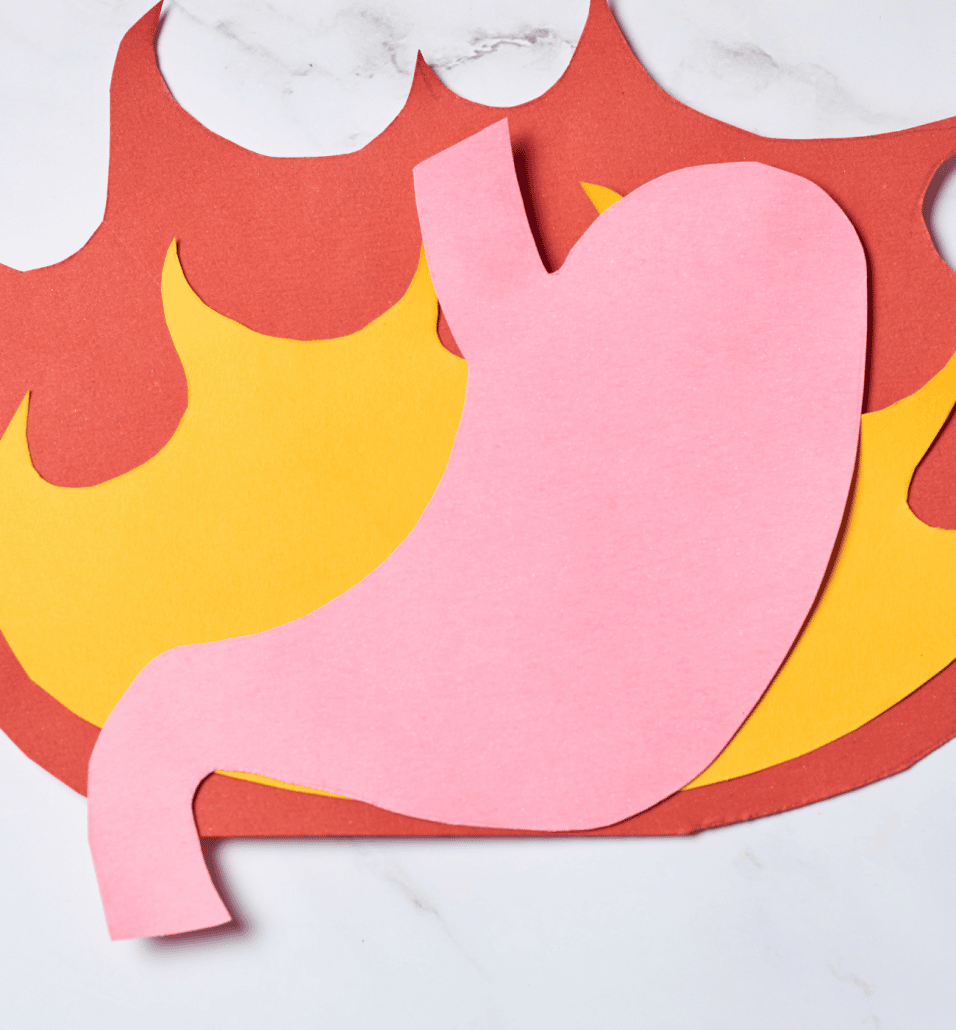Causes of Stomach Discomfort in Early Pregnancy
The miracle of getting pregnant and having a baby is something wonderful. However, the weird feeling in stomach during early pregnancy can be confusing and annoying.
You can expect to experience many different feelings during pregnancy, especially in your tummy, like bloating, nausea, and heartburn.
Luckily, understanding the causes of these sensations can help you relieve a bit of the accompanied discomfort.
Keep scrolling to find out more about stomach discomfort in early pregnancy.
Weird Feeling in Stomach During Early Pregnancy
Pregnancy feels like a rollercoaster ride to a woman’s body with all the various symptoms. What’s more, each trimester comes with its surprises.
During early pregnancy, women experience bizarre feelings inside their tummies. Oftentimes, it can be hard to tell what causes these sensations.
Here are three of the most common feelings pregnant women feel in their stomachs during early pregnancy.
1. Bloating of the Stomach During Early Pregnancy

Sometimes, women claim to have a baby bump so early in pregnancy that it can never be the actual fetus. Additionally, their clothes can feel tighter than usual during this time.
All this, alongside hearing weird noises coming out of your stomach, are signs of bloating.
The gurgling noises in the stomach during early pregnancy can be a side effect of gasses accumulating inside. This is common in pregnant women, especially during their first trimester.
Surprisingly, 49% of newly pregnant women reported having bloating. So, if you’re feeling bloated and experiencing stomach discomfort in early pregnancy, you’re not alone.
What Causes Your Stomach to Bloat?
Well, usually, the cause for bloating in early pregnancy is hormones that increase significantly during this period.
Pregnancy hormones support the development of the fetus by improving the formation of blood vessels and delivering nutrients to it. However, they can mess up your body in other ways.
Estrogen and progesterone (the pregnancy hormones) are responsible for slowing digestion down. Although this allows for better nutrient absorption, it leads to constipation and bloating.
Moreover, progesterone relaxes the muscles around the uterus to allow it to expand, including the intestine muscle. Consequently, this causes gas to build up, resulting in bloating.
Unfortunately, these feelings increase as you advance further into pregnancy. That’s because of the added pressure on the intestines.
What To Do To Ease That Feeling of Bloating Stomach Discomfort in Early Pregnancy?
Bloating and gasses can be annoying, not to mention how much constipation can cause discomfort for pregnant women.
There are a few tips to help decrease the bloating sensation and ease the symptoms accompanying it, including:
- Changing eating habits by having smaller portions more frequently rather than large portions only three times a day
- Avoiding eating late at night
- Trying to be active during the day, especially after eating
- Drinking plenty of water
- Steering clear from having spicy food or fizzy drinks
- Eating food that’s rich in fiber to aid digestion, like fruit and vegetables
Other Causes for Gurgling Noises in Stomach During Early Pregnancy
Gurgling and weird noises coming out of your stomach during early pregnancy are normal.
The thing is that you’re paying more attention to your belly now than before. That’s especially if it’s your first time being pregnant.
Naturally, your stomach contains gas and liquids that make sounds when there’s nothing to digest. So, gurgling may just be a sign that you’re hungry!
Moreover, during early pregnancy, you may experience morning sickness. That’s when you hear the sounds of your stomach while trying to keep the food down.
2. Nervous Butterfly Feeling in Stomach During Early Pregnancy

The feeling of butterflies in your stomach during early pregnancy is nothing other than the infamous “morning sickness.”
Despite the name, morning sickness doesn’t necessarily happen in the morning. In fact, you’re likely to experience nausea, vomiting, and fatigue as a pregnant woman at any time during the day.
The good news is that the disturbing feelings of morning sickness should subside anywhere between 16 to 20 weeks of pregnancy. Moreover, it doesn’t pose any risk to your unborn child.
Usually, morning sickness comes accompanied by symptoms, such as feeling:
- Dizzy or lightheaded
- Nauseous, especially after you eat
- Sick and hungry at the same time
- Suddenly repelled by food that may have been your favorite before
What Causes Butterfly Feeling in the Stomach During Early Pregnancy?
Although scientists aren’t %100 sure of the actual cause for that feeling, it’s probably related to hormonal changes.
During pregnancy, the placenta releases a hormone called human chorionic gonadotropin (HCG).
Reportedly, pregnant women with higher HCG suffer from hyperemesis gravidarum, which is the condition of excessive vomiting during pregnancy.
Overall, it’s safe to say that the butterfly feeling in your stomach is due to a combination of various reasons.
This includes hormones, increased saliva production, and an enhanced sense of smell. Even being tired or stressed can have a hand in that feeling too.
Fortunately, studies have shown that nausea during pregnancy can lower the rate of preterm births. So, despite the irritating feeling, it’s actually a good thing to have.
Having said that, there are indications making you at more risk of having morning sickness while pregnant.
This means you probably would suffer from nausea and vomiting if you:
- Usually get motion sickness (during car rides, boat rides, etc.)
- Experienced morning sickness in previous pregnancies
- Have a history of migraines
- Felt sick while taking hormonal contraceptives
- Have hereditary morning sickness
- Are pregnant for the first time
- Are stresses out
- Have a high BMI (more than 30)
What To Do To Ease That Feeling?
Basically, there aren’t definitive practices that can prevent morning sickness. Nonetheless, a few habits may ease the symptoms for some women. Therefore, it wouldn’t hurt to try the following:
- Avoiding the smells triggering this sensation
- Getting plenty of rest
- Having dry toast or plain biscuits to eat before getting out of bed
- Eating frequent and small meals of low-fat, high-carb, plain food (like bread, pasta, rice, crackers, etc.)
- Sipping little amounts of fluids instead of gulping
- Eating food or having drinks containing ginger
- Trying acupressure sea sickness bands
- Having citrus fruit or peppermint candies
Is There a Medication for Morning Sickness?
In some severe cases of vomiting and nausea, your GP may resort to anti-sickness medicine (antiemetics). That’s especially if the previously mentioned remedies don’t work for you.
Antiemetics usually treat allergies, but they can also stop sickness and are safe for pregnant women.
3. Burning Feeling in the Stomach During Early Pregnancy

You may already know that the burning sensation in your stomach is probably acid reflux. Also known as heartburn or indigestion, this sensation happens when acids in your stomach come up the throat.
Unlike what the name suggests, heartburn isn’t related in any way to your heart. Furthermore, as uncomfortable as it is, it’s not a serious condition.
Aside from getting a burning sensation in your chest, other symptoms of heartburn include:
- Feeling full and heavy
- Bloating
- Feeling sick
- Burping
- Feeling the food coming up
What Causes Heartburn During Early Pregnancy?
As previously clarified, progesterone causes the muscles of your body to relax. This also affects the valve at the top of the stomach.
Consequently, the relaxed valve allows gastric acids to escape the stomach and rise up the esophagus.
This happens especially when laying down with the help of gravity or after having a large meal.
What To Do To Ease That Feeling?
Relieving heartburn during early pregnancy is possible with the help of a few practices. However, what works for your case might not work with other women.
So, experimenting with different techniques to determine the best for your case is the solution.
Try one or more of the following tips and see how it goes:
- Avoid drinking while eating, instead drink between meals
- Follow a healthy diet and maintain an average BMI
- Take daily walks to improve digestion
- Eat frequent smaller portions rather than a few large ones and chew thoroughly
- Steer clear of food and drinks that trigger heartburn (fatty, spicy, or acidic food – chocolate – tomato-based food – fizzy drinks – caffeine)
- Stay upright after eating for at least one hour, and avoid eating right before going to bed
- Lay on your left side (this helps position your stomach lower than your esophagus to prevent acid reflux)
- Elevate your upper body while sleeping by using pillows
- Wear comfortable clothing and avoid tight-fitting attire
- Have chewing gum after meals to increase saliva production and neutralize acids that may come up your esophagus
- Eat yogurt or drink milk once you feel the heartburn (it helps alleviate symptoms)
Are Heartburn Medications Safe To Take During Early Pregnancy?
Some over-the-counter antacids are safe to take during early pregnancy. However, you need to ask your doctor about the best option for your case, as some elements may not be good for you.
A Final Thought
Waiting for your upcoming baby is an exciting event. So, you shouldn’t allow some weird feeling in stomach during early pregnancy to disrupt your enthusiasm.
Although acid reflux, bloating, and nausea can be quite annoying, they shouldn’t last for long. Additionally, you can try some home remedies to ease those feelings.
Having said that, for unresponsive cases, your doctor may recommend using a medicine. Be careful though, as you shouldn’t use any type of medication without consulting your GP.
My name is Louise and I am the Digital Marketing and Administrative Assistant at MyBump2Baby. I have been writing in the parenting niche for over 2 years specialising in fertility, pregnancy, baby and baby name support articles.


















